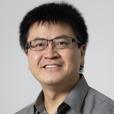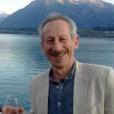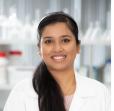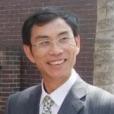

Showing 101 - 120 of 401 results


Aerosol Sampling Program
ANSTO plays a leading role in measuring and characterising fine particles from a range of locations around Australia and internationally.
International research reveals significance of human fossil methane contribution
A team of researchers including the University of Rochester, CSIRO and ANSTO has found methane emissions from human fossil sources have been greatly underestimated.

Role at ANSTO
Access to instruments
Approximately 200 external users access the accelerators through the merit-based system, in-kind partnerships and pay for service arrangements,

Support for industry, innovation and technology transfer
The Centre for Accelerator Science welcomes collaborations with industry for the development of new technologies,
nandin deep tech hothouse sees businesses bloom
Two startups supported by the nandin Innovation Centre at ANSTO have hit the ground running in 2021 securing major opportunities from state governments to see their businesses thrive.
Improving the radiation tolerance of microelectronics for space
A team of Melbourne researchers and international partners from Italian Instituto Nazionale de Fisica Nucleare (INFN) and CERN, who are developing radiation-hardened semiconductor chips, used the unique state-of-art high energy ion microprobe on the SIRIUS ion accelerator at ANSTO’s Centre for Accelerator Science to test a prototype radiation-resistant computer chip
ANSTO scientists help refine estimates of global methane emissions
A groundbreaking international study has provided new insights into global fossil methane emissions, using innovative multi-isotopic atmospheric measurements.
Advancing particle therapy
Meeting of minds about potential next-generation cancer treatment for Australians
Scientific ingenuity + design powers challenge-based innovation
A 'Challenge-Based Innovation' platform at the nandin Innovation Centre is progressing as part of a funding package from the NSW Government and a Memorandum of Understanding with Swinburne University of Technology and Design Factory Melbourne (DFM).
Fine tuning materials for energy storage using architectural design and structural engineering
Energy researchers from UNSW have reported progress using controlled architectural design and structural engineering as a method to fine-tune materials to have simultaneous high power and high energy density for the electrochemical storage in portable devices.
ANSTO’s virtual and augmented reality experience
An opportunity to take an unforgettable journey and explore ANSTO science virtually at the atomic scale for National #scienceweek

Radiation biology
The measurement and manipulation of radiation and radioactive materials within biological systems. Capabilities include access to a range of radioisotopes, gamma/X-ray sources and a selection of X-ray beams, ion beams and neutron beams for irradiation.
ANSTO and the Powerhouse Museum: a powerful new partnership for the applied arts and sciences
ANSTO, the home of Australia’s nuclear science expertise and the Powerhouse Museum, home of Australia’s excellence and innovation in the applied arts and sciences will collaborate on research projects, establish an Indigenous Cultural Research Scholarship and combine efforts on STEM outreach activities.
ANSTO supports global efforts to verify peaceful uses of nuclear technologies
ANSTO has a role in the global monitoring system on behalf of Australia to ensure non-proliferation of weapons and that nuclear technology is only used for peaceful purposes.
ANSTO data and expertise used in major report on Australian environment

Role at ANSTO

Role at ANSTO
Dr Jian is involved in the study of accelerator optics and ion beam control, Ione beam interaction with different materials, IBA techniques and applications.
ABC showcases research on plants heading to the moon
ABC has reported space research on plants being sent to the moon at the Centre for Accelerator Science.